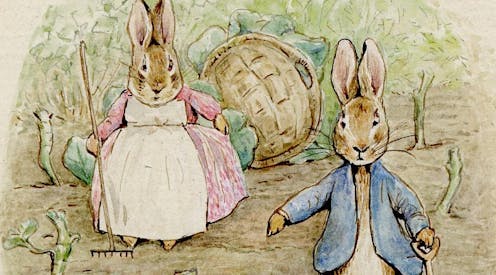
This year, the Insights series has covered a wide range of important topics but the themes of ‘unheard voices’, artificial intelligence (AI) and mental health have led the way.
In long-form articles and podcasts, our authors have put the spotlight on groundbreaking new research, at times giving voice to those who rarely get a chance to tell their stories.
Unheard voices
We started the year with the “invisible” COVID heroes struggling to make ends meet and examined the religious lives of sex workers, before taking a deep-dive into the issues faced by asylum seekers in the UK and abroad.
Read more: COVID heroes left behind: the 'invisible' women struggling to make ends meet
We heard from undocumented migrants who were finding work as substitute food couriers, and from former Irish nuns who opened up about the brainwashing and abuse they were forced to endure.
In June, on the 75th anniversary of Windrush, Maria del Pilar Kaladeen began her long read: “My father never spoke to us about Guyana, the country of his birth, when we were growing up because he believed that his history had no value to his children.” Kaladeen’s deeply personal article looked at how the stories of Indian indentured labourers from the Caribbean were largely forgotten in the overall Windrush narrative.
Read more: Invisible Windrush: how the stories of Indian indentured labourers from the Caribbean were forgotten
She says they were a minority within a minority and subsequent generations were left with little information about their pasts – about who they were.
In September, the Oxford academic Ammar Assouz wrote about how he was forced to flee his home in Homs, Syria, 12 years ago as the war there began tearing apart streets and neighbourhoods.
His research examines how modern wars, whether in Iraq, Ukraine, Syria or Yemen, are increasingly putting civilians on the frontline, turning cities into battlefields and displacing millions across the world.
And in October we reported from Indonesia where a small fishing community is facing eviction under plans to transform Rempang Island into a solar panel “ecocity”. Around 7,500 islanders are fighting to keep their homes as the government plans to uproot them to make way for a multi-billion dollar Chinese-backed manufacturing hub.
Nikita Sud visited the island and reported on the violent backlash from state forces as protestors took to the streets. She believes Rempang is just the latest “sacrificial zone” in the international quest for green energy which is reliant on developing countries.
AI and data
We’ve also been keeping a close eye on developments in AI and machine learning and the real-life consequences of this fast developing technology.
David Beer’s story investigated the history of neural networks and revealed how the early analogue versions of ChatGPT were huge contraptions which performed baffling memory tasks which their creators could not understand.

And it turns out that modern machine minds are just as mysterious. The unknown, it seems, has been pursued as a fundamental part of these systems from their earliest stages.
Read more: AI will soon become impossible for humans to comprehend – the story of neural networks tells us why
Meanwhile, Melissa Hamilton and Pamela Ugwudike, revealed how AI’s digital tentacles are firmly wrapped around elements of the UK’s criminal justice system. This influence dates back further, and runs much deeper, than most people realise.
For more than two decades, a “black box” AI system has been influencing decisions made by our courts and prisons, and by parole and probation officers. Yet scientists outside the UK government have never been permitted full access to the data behind this system, to independently analyse its workings and assess its accuracy.
Mental health
Insights also launched a new series in 2023. Tackling the Mental Health Crisis aimed to better understand the complex challenges – and the potential solutions – around this huge issue.
Our authors have so far investigated how and why music is such an effective therapy for mental illness, and how OCD is so much more than handwashing.
Read more: How to solve our mental health crisis
To kick off the series, health historian Matthew Smith wrote about how we already know how to solve the mental health crisis – we just don’t care enough about society as a whole to do it.
Peter Rabbit
But it was an article commissioned by arts and culture editor Naomi Joseph about a familiar bunny that provided our most-read piece of the year.
Most of us know Peter, the little rabbit in the blue coat. Beatrix Potter’s tales of his exploits have populated many childhoods.
These stories are held to be decidedly British, believed to have sprung from the mind of Potter who was inspired by the rolling green countryside of north-west England and her pet rabbit Peter.
However, while researching the African-inspired folk tales of Brer Rabbit, the post-colonial literature academic Emily Zobel Marshall saw some surprising connections.
Closely reading Potter’s letters, biographies and books, Marshall argues that Potter’s tales owe a great debt to Brer and the enslaved Africans who retold these stories on plantations in the US – a debt she never acknowledged publicly.
This article was originally published on The Conversation. Read the original article.







